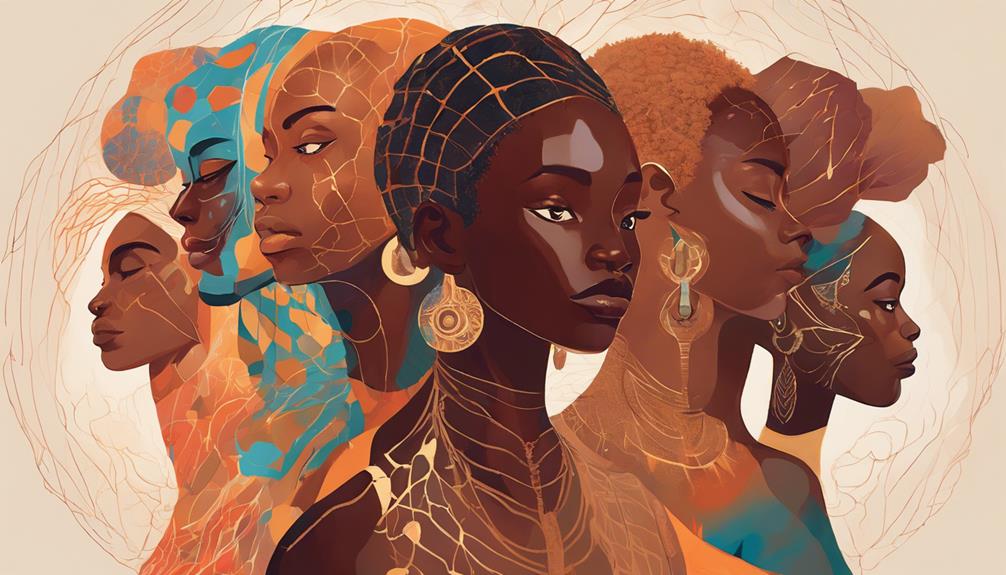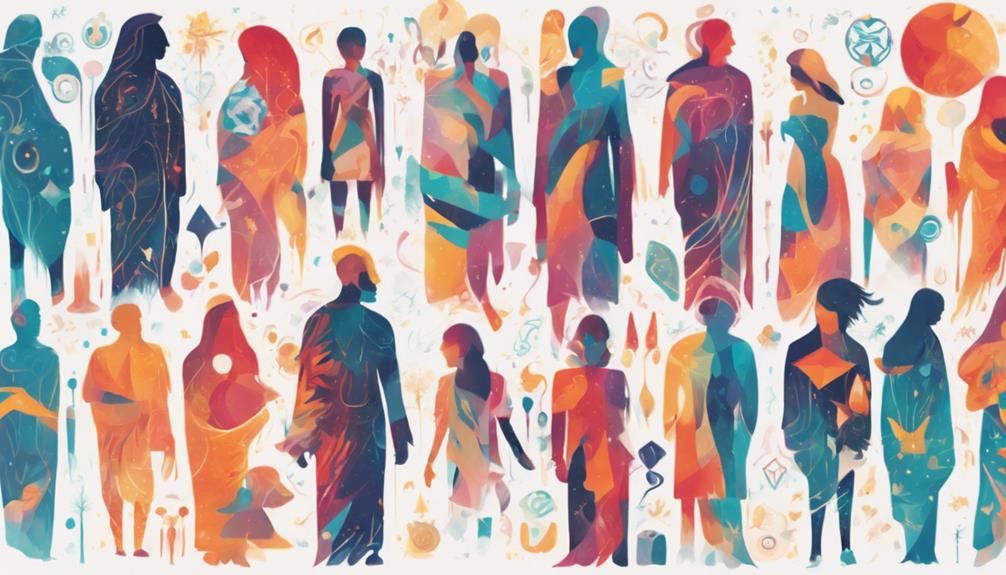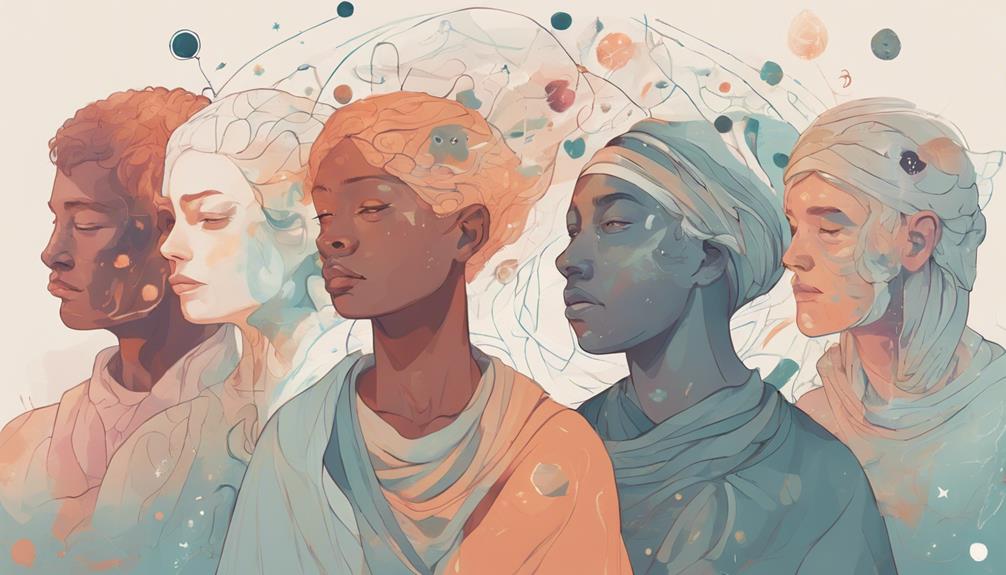Summary
- 1 Definition of Black Psychology
- 2 Historical Context
- 3 Fundamental Principles
- 4 Cultural contexts
- 5 Common misconceptions
- 6 Implications for mental health
- 7 Risks of Negligence
- 8 Frequently Asked Questions
- 8.1 How does black psychology address issues related to racial trauma?
- 8.2 What are some key figures in the development of black psychology?
- 8.3 How can therapists integrate black psychology into their practice?
- 8.4 Are there specific therapeutic techniques unique to black psychology?
- 8.5 How does black psychology intersect with other cultural psychologies?
Black psychology focuses on understanding the distinct psychological and behavioral experiences of Black individuals. This field takes into account the diverse cultural, historical, and social contexts that influence mental health and well-being. Emphasizing strengths and resilience, it focuses on community and cultural identity. Neglecting black psychology can lead to misdiagnosis, increased stress, and lack of trust in mental health services, as well as to a lack of consideration of crucial cultural factors. Culturally competent mental health care is crucial to effectively supporting the black community. Explore how these elements affect mental health and the importance of individualized approaches.
Definition of Black Psychology

Black Psychology is the study of the psychological experiences and behaviors of Black people, shaped by their historical, cultural and social contexts. It is a field that aims to understand how these distinct factors influence the mental health and well-being of Black individuals.
Imagine delving into how someone's environment and personal history shape who they are. Black Psychology does just that for Black people. It examines how cultural traditions, family structures and even community dynamics influence mental health. It is not just about identifying problems; it is also about recognizing strengths and resilience.
You might ask why this is important. Well, mainstream psychology often overlooks these unique aspects of Black experiences. By focusing on Black Psychology, you are recognizing that one size does not fit all. Different experiences require different approaches. This field aims to create more effective and culturally relevant mental health care.
In essence, Black Psychology is not just a study; it is a movement toward better understanding and support of Black people. It is about seeing the individual as a whole, not just through a universal lens, but through one that respects and values their unique journey and experiences.
Historical Context
To understand the roots of the Black Psychology, there is a need to examine the historical struggles and triumphs that have shaped black communities over the centuries. The field was born out of the need to address the unique experiences of black people, often ignored or misunderstood by the traditional psychology.
First, the legacy of slavery has had a lasting impact on the mental health of black people. This brutal history has caused deep emotional and psychological scars, affecting the way black communities perceive themselves and their world.
Second, the Civil Rights Movement was a pivotal moment in black history. During this period, the black psychologists began to advocate approaches that recognized the cultural and social contexts Of black life. This movement prompted the development of theories and practices more relevant to black experiences.
Third, the creation of organizations such as the Association of Black Psychologists (ABPsi) in 1968 marked a significant step forward. These organizations aimed to create a space in which Black psychologists could collaborate and develop conceptual frameworks that would better serve their communities.
Fundamental Principles

Building on this historical foundation, you can now investigate the fundamental principles that guide the Black Psychology. One of the key principles is theaffirmation of black identity. Black Psychology emphasizes the importance of understanding and celebrating the unique cultural experiences and contributions of black individuals. This helps promote a positive self-image and collective pride.
Another central principle is the focus on community and the collective well-being compared to theindividualism. In Black Psychology, the health and success of the community is seen as interconnected with the well-being of each member. This principle encourages you to look beyond personal successes and consider how your actions affect the larger community.
Holistic wellness is also an essential principle. Rather than focusing only on the mental health in isolation, Black Psychology considers the physical, emotional and spiritual dimensions of well-being. This means you will examine how various aspects of life, including family, cultural practices and even historical context, influence mental health.
Finally, we highlight the resilience and resistance. Black Psychology recognizes the historical struggles and in progress faced by black communities and emphasizes the strength and resilience developed in response. Understanding these principles can help you appreciate the unique perspective Black Psychology brings to mental health.
Cultural contexts
Understanding cultural contexts is critical to understanding how Black Psychology addresses the unique experiences of Black individuals. When we think about cultural contexts, we reflect on the traditions, values, and social norms that shape a person's life. Black Psychology takes these factors into account to provide meaningful and effective mental health support.
First, it is important to recognize the role of historical context. The history of slavery, segregation, and systemic racism has had a lasting impact on Black communities. This historical background influences how Black individuals experience the world today.
Second, family dynamics are crucial. In many black families, extended family members play a significant role in providing emotional and social support. Understanding these dynamics helps mental health professionals provide better support.
Finally, spirituality and religion often occupy a central place in black communities. Churches and spiritual practices can offer both comfort and community, making them an important aspect of psychological care.
Here are three key elements to think about:
- Historical Impact: Recognizing the lasting effects of historical injustices.
- Family Dynamics: Understand the importance of the extended family.
- Spirituality and Religion: Recognize the importance of faith and community.
Common misconceptions

You might think you understand black psychology, but there are some common misconceptions that can get in the way. People often overlook the historical contest, lack cultural competence and tend to overgeneralize. Let us clarify these points to dispel any confusion.
Historical context misunderstood
Many people mistakenly assume that black psychology is a recent field, but its roots go back much further in history. Understanding this context helps clarify common misconceptions. Black psychology is not just a modern reaction to recent social issues; it is a field with a rich history deeply rooted in the experience and struggle of African Americans.
To better understand this, consider these key points:
- Early pioneers: Scholars such as Francis Cecil Sumner and Inez Beverly Prosser were among the first African Americans to earn doctorates in psychology in the early 20th century. Their work laid the foundation for understanding the unique psychological experiences of black individuals.
- Civil rights era: In the 1960s and 1970s there was an increase in black psychologists focusing on issues such as racial identity and the impact of systemic racism. This period was vital in shaping black psychology as a distinctive field.
- Historical contributions: African traditions and philosophies have long influenced black psychology. Concepts such as communalism and spirituality have been integral parts of psychological well-being in black communities for centuries.
Gap in cultural competence
Recognizing the rich history of black psychology is important, but there is still a significant gap in cultural competence in the field today that leads to common misunderstandings. You might think that all psychologists are equally capable of understanding every culture, but that is not always true. Many professionals lack the training or exposure necessary to understand the unique experiences and challenges faced by Black individuals.
One of the common misconceptions is that mental disorders manifest the same way in different cultures. In reality, cultural origin can greatly influence how symptoms are experienced and expressed. For example, what might be considered a symptom of depression in one culture might be interpreted differently in another.
Another misconception is that standard treatment approaches work for everyone. Treatment techniques that are effective for the general population may not resonate with black clients. Understanding cultural nuances is essential to providing effective treatment.
Finally, there is often an assumption that discussing race and cultural identity is not necessary in therapy. However, these topics can be central to a person's mental health and well-being. Ignoring them can lead to a lack of trust and ineffective treatment. Addressing these misconceptions is crucial to bridging the gap in cultural competence in black psychology.
Problems of overgeneralization
A major problem in black psychology is the overgeneralization that all mental health experiences and needs are the same in all different cultural settings. This assumption can lead to ineffective treatments and misunderstandings. It is important to recognize that each individual's experience is unique, influenced by various factors such as socioeconomic status, personal history, and cultural context.
Here are three common misunderstandings that result from overgeneralization:
- One Approach for All: Assuming that what works for one cultural group will work for another can be harmful. Mental health strategies must be tailored to meet the specific needs of Black individuals.
- Ignoring Cultural Differences: Leaving out the unique cultural experiences and stresses faced by Black individuals can lead to misdiagnosis and inadequate support. Cultural sensitivity is critical to effective mental health care.
- Stereotype: Believing that all blacks share the same characteristics or problems can perpetuate harmful stereotypes and prejudices. Each person's mental health journey is different and deserves individualized attention.
Understanding these misunderstandings can help you advocate for more personalized and culturally competent mental health care. It is essential to approach black psychology with an open mind and a commitment to recognizing and respecting diversity.
Implications for mental health
Understand the implications of the black psychology on mental health can enable you to recognize and address the culturally specific challenges. It is important to understand that traditional psychology may not always consider the unique experiences of black individuals. By focusing on black psychology, you can gain perspectives on how cultural heritage, the systemic racism and the community dynamics influence mental health.
For example, you might face stresses related to the racial discrimination or to the economic disparities. Black psychology helps you understand these experiences and find ways to cope with them. It emphasizes the importance of thecultural identity and community support, which can be essential for emotional resilience. You will learn that being connected to your cultural roots can offer a sense of belonging and strength.
In addition, black psychology encourages you to seek out mental health professionals who understand these unique dynamics. It is vital to find culturally competent therapists who can offer support that respects your background. This approach can lead to more effective and meaningful therapy sessions.
Risks of Negligence

Neglecting the principles of Black psychology can lead to significant risks to the mental health of individuals in the Black community. When the unique experiences, cultural contexts, and historical backgrounds of Black individuals are neglected, the effectiveness of mental health care can be severely compromised. This neglect can lead to several serious problems:
- Diagnosis error: Without considering the cultural context, mental health professionals may misinterpret behaviors or symptoms, leading to misdiagnosis and ineffective treatments.
- Lack of trust in mental health services: When people feel misunderstood or marginalized, they are less likely to seek help. This can worsen mental health conditions due to untreated symptoms.
- Increased stress and anxiety: Ignoring cultural factors can amplify feelings of isolation and stress, as individuals may feel that their struggles are not recognized or validated.
Frequently Asked Questions
How does black psychology address issues related to racial trauma?
Black psychology addresses the racial trauma Recognizing the unique experiences of Black individuals. It emphasizes cultural strengths, the community support and resilience. You will find that it focuses on healing through understanding historical and social contexts, promoting mental well-being, and individual empowerment. Techniques such as storytelling, group therapy, and culturally relevant practices are used to help you process and overcome trauma, fostering a sense of identity and belonging.
What are some key figures in the development of black psychology?
You have some key figures in black psychology who really made a difference. Dr. Joseph White is known as the 'Father of Black Psychology' and pushed for recognition of the experiences of African Americans. Dr. Asa Hilliard worked on educational psychology focusing on Black students. Dr. Francis Cecil Sumner, the first African American to earn a doctorate in psychology, laid the foundation for future scholars. Their work is essential to understanding black psychology today.
How can therapists integrate black psychology into their practice?
You can supplement the black psychology in your practice by understanding the cultural experiences of Black clients. Begin by educating yourself on the history and major theories of Black psychology. Use culturally relevant assessments and interventions and create a safe space for discussions about race and identity. Collaborate with community resources and continually seek feedback from your clients to ensure that your approach is effective and respectful of their unique experiences.
Are there specific therapeutic techniques unique to black psychology?
Yes, there are specific techniques unique to Black Psychology. You will find approaches such as the use of the narrative, which helps connect cultural experiences and personal history. Another technique is the community healing, which focuses on collective welfare rather than only on individual issues. These methods honor the cultural values and foster a sense of belonging, making therapy more relational and effective for black clients.
How does black psychology intersect with other cultural psychologies?
Black psychology intersects with other psychologies cultural focusing on the cultural context and on identity. You will find that it emphasizes unique cultural experiences and the historical antecedents, just as Latinx or Asian psychologies do. All aim to understand how culture shapes mental health and behavior. By recognizing these intersections, you can see how different cultural psychologies work together to provide more personalized and effective mental health care.
